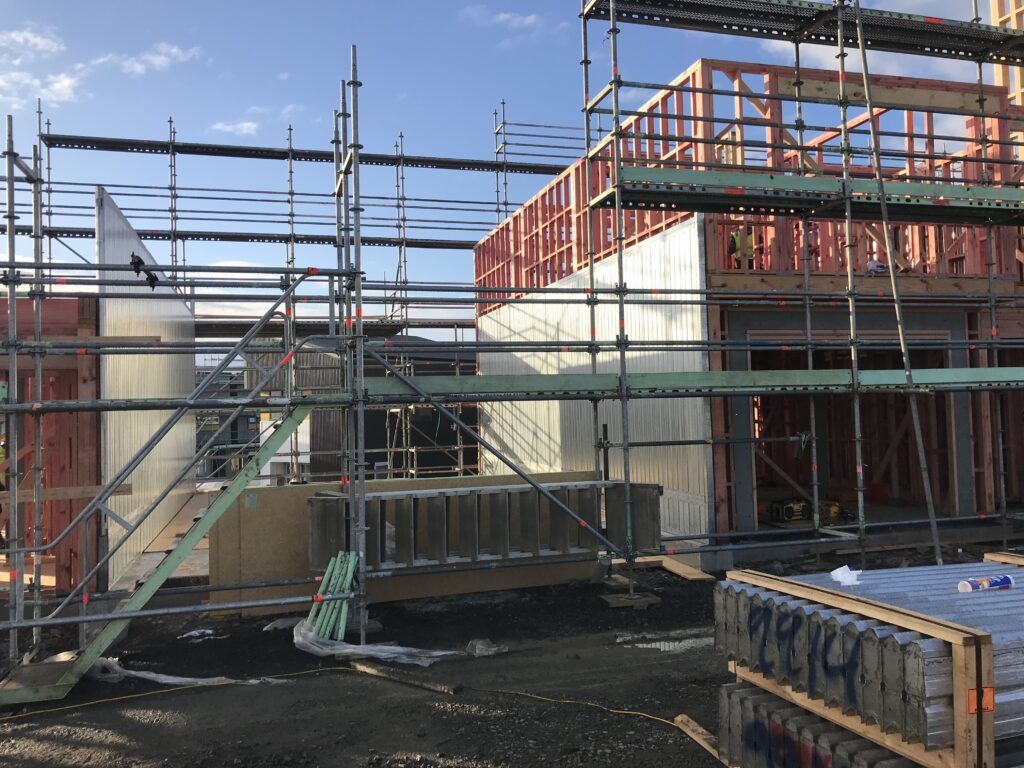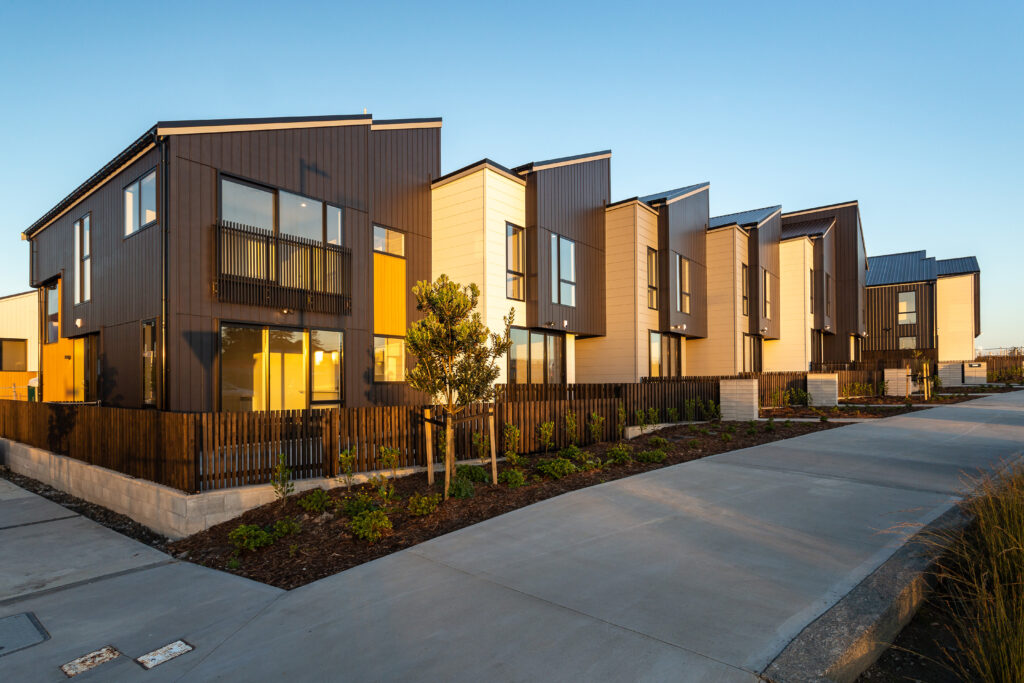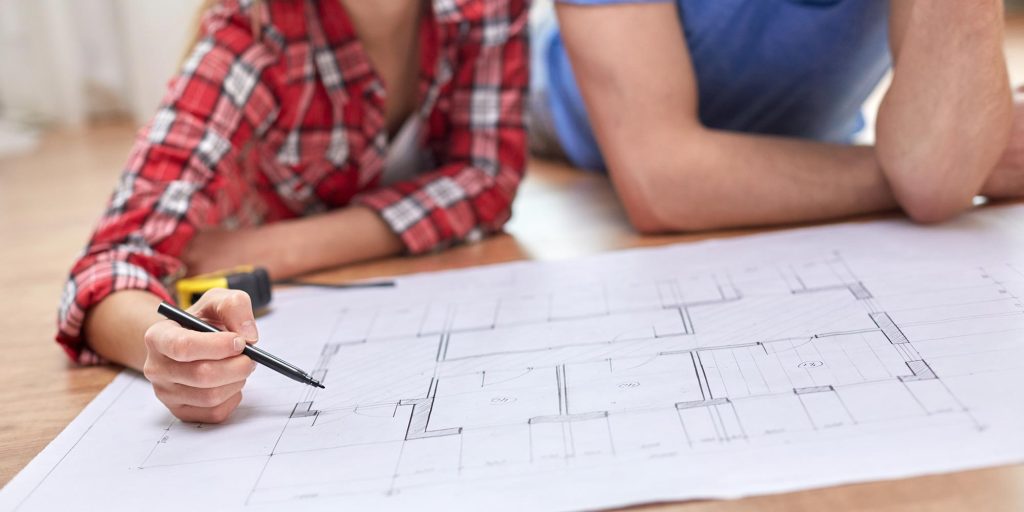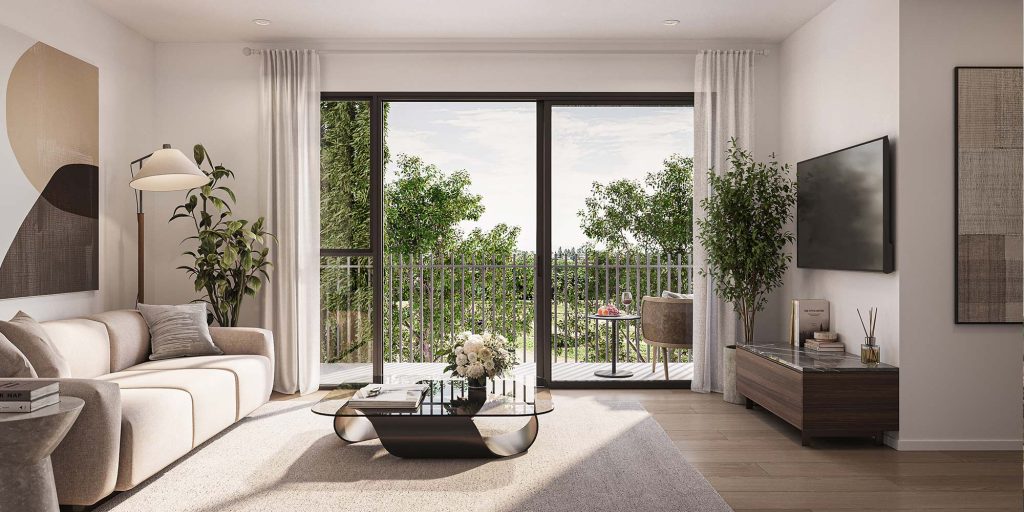New build benefits for investors
Thinking about dipping your toes into the property investment pool? Property investment is one of the most popular methods of investing in New Zealand, and can be one of the biggest investments or life decisions you will make. Investing in property may feel like an exciting step, or a daunting prospect. There are many questions you may have when starting on your property investment journey, including how to begin investing in property, how to work out if you can afford it, what type of property to buy, and how to find tenants. The answers to each of these questions will differ depending on your current circumstances and if you have equity in your home.

What is an investment property?

The difference between an investment property and your own home is that you can earn an income from an investment property.
An investment property has the potential to provide solid results and returns for you, growing your capital and generating income. Any financial returns from property investment come from rental income and from the potential increase in the value of property over time, which is called capital gains. To start investing in property you generally need one of two things; a cash deposit, or you need to own your existing home (or other property) and have paid down enough debt to use the equity within that property as your deposit.

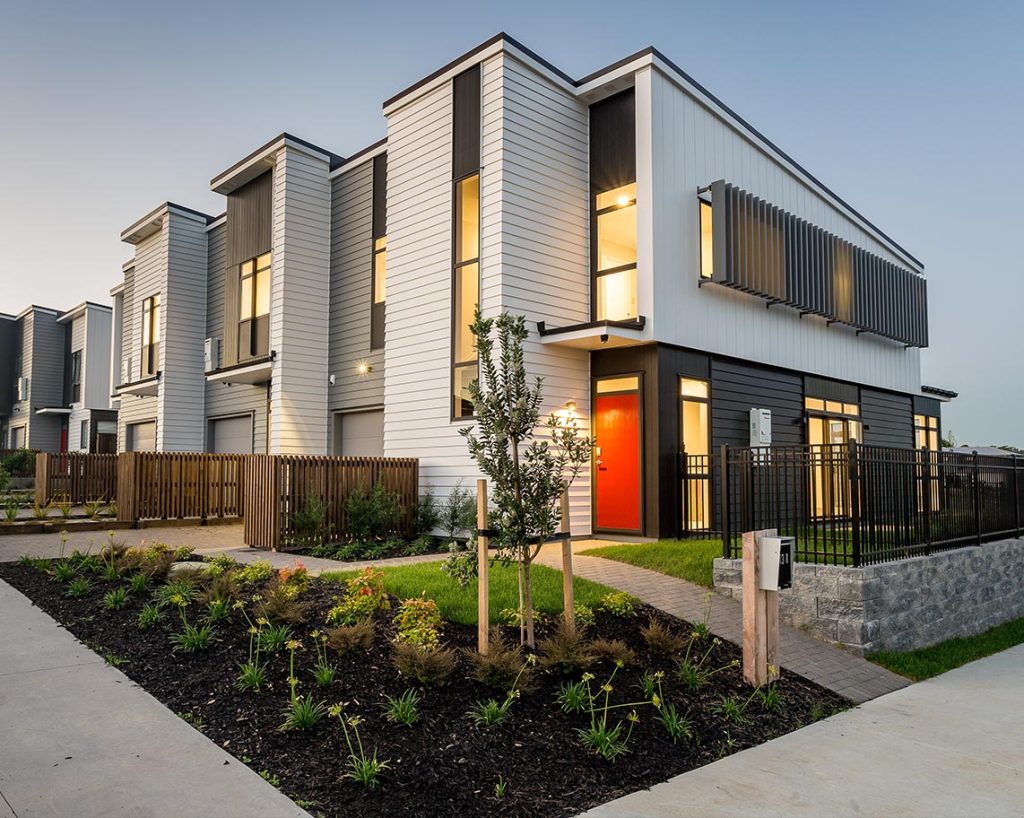
Why invest in property?
Property investment can be an opportunity to grow your savings. If you can afford to buy a second, third or subsequent property, your tenants will pay a proportion or all of the mortgage and any other costs, as you slowly build up capital gain. An investment property can give you what is described as passive income, which is money you earn even when you’re not working. It can be a great way to set yourself up for retirement.
The number of households renting across New Zealand is increasing each year. Many of these are living in homes owned by private landlords. Investing in property is a way to assist with rental demand and an opportunity to build your wealth. For many investors, a major plus to purchasing a rental property is that it’s an asset that you can see and feel. Some find that it can be easier to relate to investing in a house than in something less tangible, such as shares. Turning a real estate investment into a profitable venture can sometimes be easier said than done. This is especially true in a market that is rapidly changing. However, market uncertainty can create opportunities for profit-making. If you make the right investment at the right time, you could capitalise on a market upswing and make financial gains.
Before investing in property, we recommend discussing your circumstances and seeking advice from your financial advisor.
What to consider when purchasing an investment property
Our expert team has compiled some of the key points which frequently arise when working with our investment customers, for you to consider when purchasing an investment property.

Location Location
The location of a potential rental property can be an important factor in making a good investment. A similar type of property in various areas will have different values based on its location. If there are two almost identical properties in two different locations, then you’ll need to consider two very different sets of values including purchase price, type of tenant, vacancy rates, and rental return. Consider the future: where new roading, public transport connections, and commercial hubs are planned or have recently been developed. This ensures the location is an attractive prospect for tenants.

New Build Benefits
A new build house is the optimal choice for an investment property. The benefits of a new build property are numerous, including new materials and technologies, fixtures and fittings, and appliances, each with manufacturer guarantees and warranties. Double glazing and superior insulation mean better all-around thermal performance, a reduced need to pay for heating, and benefits for both the investor’s and the renter’s outgoings. Brand new rental properties typically deliver higher demand from renters, less turnover of tenancies, higher rental yields, and strong saleability in the future.

Minimise Your Risk
New also generally equates to fewer improvements; a new house is usually going to be in better condition than an older home. This can apply to the exterior and interior visually, but also to internal and structural aspects. With older homes, there could have been any number of changes to the original designs including unconsented alterations. When buying an existing property, there is the added risk of conducting your due diligence and understanding aspects including weather tightness, code of compliance, and insulation standards, which could mean additional remedial or renovation costs in the long run.
Reduce Maintenance Concerns
Ongoing maintenance needs are a key consideration for investors. In an existing or older home, you may need to address maintenance or repairs more often. A brand-new investment property will require minimal maintenance. A new property means you are unlikely to need to complete larger one-off repairs and won’t be inheriting pre-existing issues or unknown maintenance problems, which can make a significant difference when weighing up investment property options. For example, with a new build, you’re less likely to have to replace an old hot water cylinder at short notice, or save for and organise the installation of a new roof. Not only can this translate into reduced outgoings for investors, but also time saved on managing property needs and liaising with a property manager or tenants. This can mean more consistent cash flow.

Healthy Homes Tick
Meeting the government’s latest rental standards can be a major challenge for property investors with some older homes. A brand new home means the latest building methods and technologies have been used. A new home is built to a higher build standard which means a warmer, drier home, and a healthier environment for those with asthma or allergies. This delivers you with an optimal rental property designed to meet the government’s building code and current New Zealand Healthy Homes standards, which have a higher standard than many existing homes. Healthy new investment properties can be more attractive to tenants than older properties, which may translate into being able to command a higher rent.


Tax Benefits For New Builds
The recent changes to New Zealand housing interest deductibility tax laws benefit new builds as an investment choice. The new law changes have been put in place to make investing in multiple properties more difficult, in turn freeing up more opportunities for kiwis wanting to buy their own home to live in themselves. The bright-line period (referring to income tax paid on any gains from residential property investment) is now ten years on existing residential properties. This period of time is not applied to new build houses. These remain at the five-year bright-line period. This provides an opportunity and significant tax benefit to investors purchasing new build investment properties. Investors who purchased existing properties generally have to pay considerably higher tax bills. We recommend discussing all this with your financial advisor.

Look At The Loan To Value Ratio
A loan-to-value ratio (LVR) is the measurement of the size of your loan in comparison to the value of the property. The amount of deposit an investor needs to buy an existing property under the Reserve Bank’s LVR rules is currently higher than it is to purchase a new build property. New build properties bought from a developer directly are currently exempt from LVR restrictions. This means you can currently purchase a new build investment house with a lower deposit. It is important to note that the LVR restrictions are likely to continue to change over time. Contact your financial advisor to discuss this in more detail.
The Emotional Angle
It can be easy to get caught up in emotions when buying an investment property and look at what you would like or need in a house that you would be living in yourself. Don’t fall in love with your investment property! An investment property will most likely be very different to your own home. It’s important to remember that this is an investment and make decisions based on if purchasing the property is likely to help achieve your financial goals.

Financial Goals
Patience can be a virtue when it comes to property investment. People generally buy investment properties to make a long-term profit as prices rise. In the short term, there may be little or no profit from rent after expenses like mortgage, insurance, rates, and maintenance are taken into account. Property goes up and occasionally down in value in a cycle. Added to this is how various regions’ property growth cycles can differ. It’s not a predictable or straight line, which means that capital gains and rental returns will vary over the years. While markets will fluctuate, many find property investment to be beneficial over the long term. Do your research thoroughly: surround yourself with people you trust, including financial advisors, tax experts, accountants, property managers, and lawyers.

It's A Numbers Game
Consider your financial goals, and make sure this is the right property to help you achieve them. This might include asking yourself questions like if you can financially top up the rent, or if you can support this if the property decreases in value. Decide if to focus on high rental yield or take advantage of potential capital gains. Rental yield is the yearly revenue your investment property generates. It is calculated based on a percentage of your property’s total value. The higher the percentage, the better the yield. Gross yield is the total amount of revenue your property generates before any costs are taken into account. Net yield is the amount of revenue you pocket after all associated costs have been deducted, like tax, rates, mortgage repayments, insurance, and maintenance. When looking at the property’s yield it is important to acknowledge the difference, as the net yield is the actual amount of profit your investment property generates.
Most investment properties are purchased with intent to generate a high rental yield, or for capital gains. A high rental yield could cover your mortgage repayments, and help provide the cashflow you need to take care of costs like property maintenance and rates. Capital gains won’t provide cashflow, as you will only see the returns when the property is sold. This provides opportunity down the track. Remember that capital gains are never guaranteed.


10-year Master Build Guarantee
Universal standalone, duplex and terrace homes come with a 10-year Master Build Guarantee. Please note certain types of apartments may not be covered by Master Build’s 10-year Guarantee. A Master Build Guarantee starts from the time construction begins. Should you decide to sell your Universal investment property in the future, you can organise to transfer the remaining balance of the Master Build Guarantee to the new owner. Many of the products we use in our new homes also have their own individual warranty periods and guarantees from the manufacturer. We advise our clients to check these, register products if relevant, and ensure that maintenance is carried out in accordance with the manufacturer’s guidelines.

12-month maintenance promise
Each Universal Home comes with our 12-month defects maintenance promise. This means that should any defects arise for the year following the settlement date, our aftercare service will get it sorted for you. We are continually committed to satisfying our new home buyer’s needs. You can trust Universal Homes to make it right on the rare occurrence that there’s an issue.
Universal Homes are investor-ready homes

A brand new Universal home is an investor-ready home, making it a great choice for a rental investment whether you’re starting out or adding to your portfolio. Each Universal home is a turnkey property, meaning that upon completion and settlement, it is ready to move into immediately.
Universal homes are situated in popular locations, handy to public transport, arterial routes, great parks and beaches, excellent schooling, and vibrant retail and dining options. Homes are designed and built to meet and exceed the New Zealand government’s healthy homes standards and the New Zealand Building Code, with some of our homes in select locations additionally achieving an impressive Homestar 6 Environmental Build certification. We offer varying sizes and styles of properties, from lock-and-leave townhouses, duplexes, or apartments, to larger stand-alone family homes.
Legal information
Universal Homes is not a financial adviser. The material published in this document is of general nature only, and has been provided as a general information service by Universal Homes solely for information purposes for use by prospective property purchasers and/or investors. This document is not intended, nor capable of being construed as, financial, legal or investment advice or advice on any specific problem or situation. Because the information is general in nature, it has been prepared without taking into account any person’s individual objectives, financial situation or particular needs and may not be relevant to individual circumstances. Before purchasing a property or making any investment, borrowing, insurance or financial planning decisions, you should consult a professional adviser and seek your own investment, accounting, financial, legal, tax and other professional advice. Professional advisers can help vou decide whether your decision is appropriate for you.
While every care has been taken to supply accurate information, errors and omissions may occur and no representation or warranty is made as to the accuracy, completeness, reliability, adequacy or reasonableness of the information. Accordingly, Universal Homes accepts no responsibility or liability for any loss caused as a result of any person relying on the information supplied.
More Information For Investors
Read more of our articles for investors
